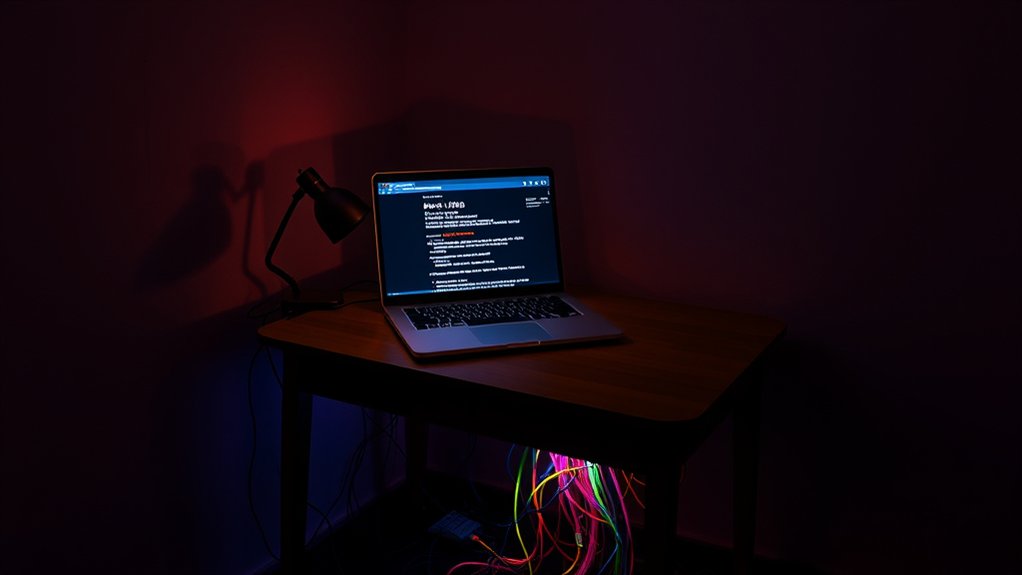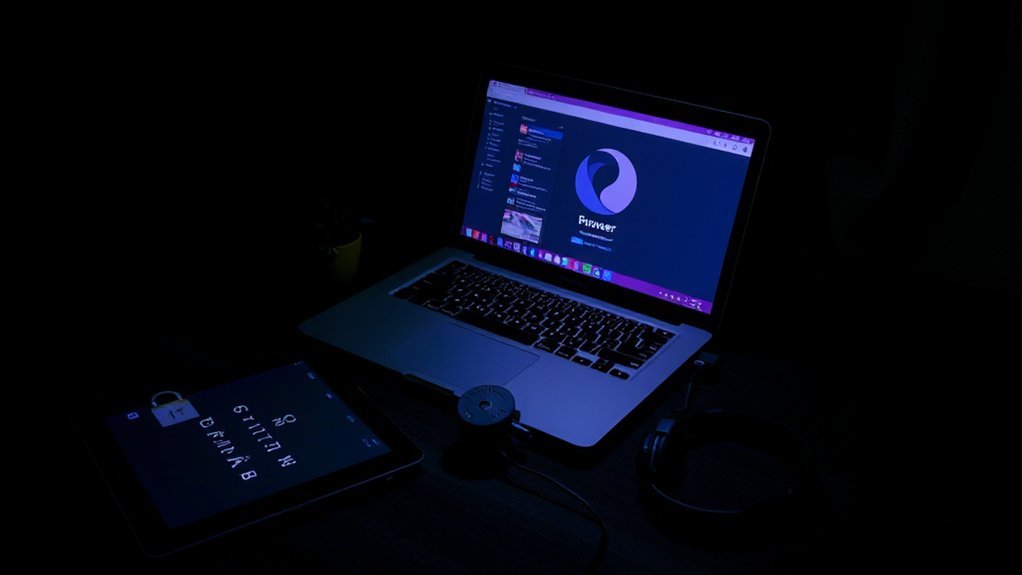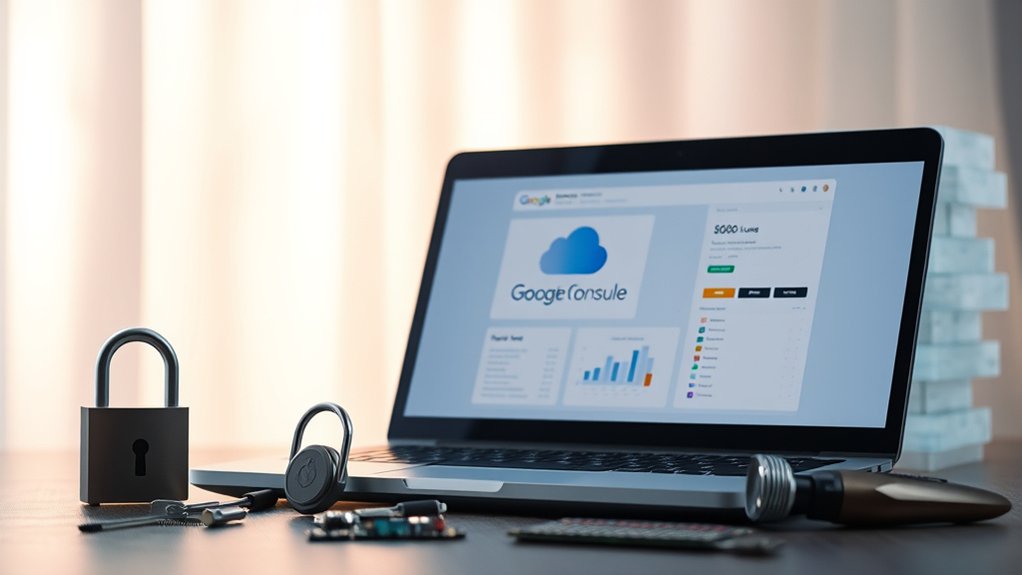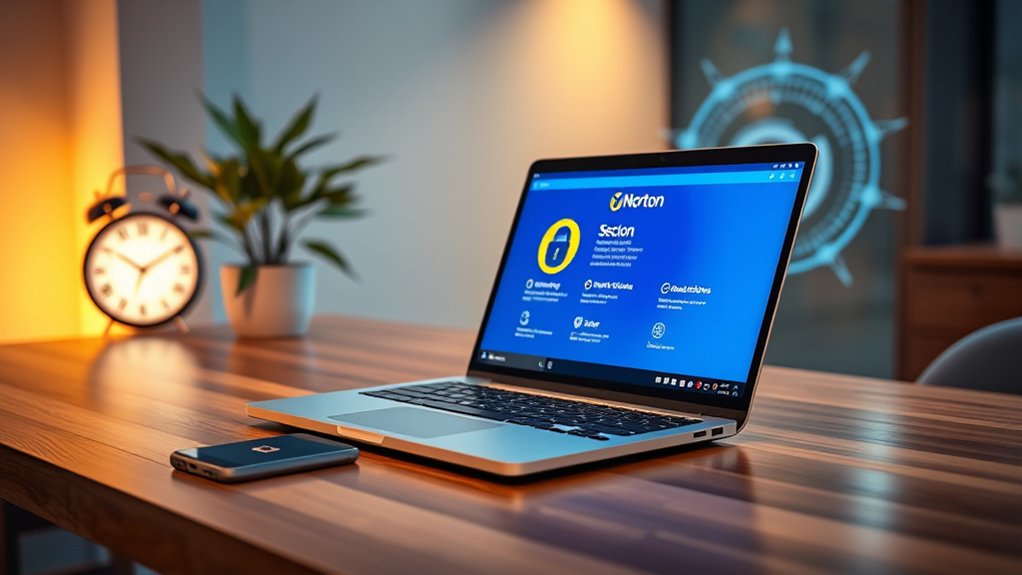To safely search the dark web, one must utilize specific tools and precautions. First, install a Virtual Private Network (VPN) to encrypt internet traffic. Next, use the Tor Browser to access .onion sites, avoiding standard browsers that lack security. Familiarize oneself with reputable dark web search engines like DuckDuckGo and Torch. Practicing caution with links and disabling JavaScript is essential for maintaining anonymity. Understanding legal implications is of equal significance, as activities on the dark web can lead to serious consequences. Further insights await those looking to improve their knowledge.

The dark web represents a complex and often misunderstood segment of the internet, characterized by its commitment to anonymity and privacy. Users are drawn to this hidden layer, often seeking to conceal their identity in an environment where tracing activities back to individuals proves challenging. Access to the dark web requires specialized software, primarily the Tor Browser, which encrypts users’ communications to guarantee a secure browsing experience.
The dark web is a hidden facet of the internet, emphasizing anonymity and challenging any attempts to trace user identities.
Websites on the dark web utilize the .onion domain, rendering them invisible to conventional search engines such as Google.
For beginners aspiring to investigate the dark web, establishing a secure setup is vital. Installing a Virtual Private Network (VPN) improves privacy by encrypting internet traffic and obscuring the user’s IP address. The Tor Browser remains indispensable for traversing .onion sites, whereas alternative browsers like Brave exist, albeit with less sturdy security features.
Furthermore, it is critical to curate a secure computing environment by removing potential malware and continuing education regarding the legal complexities associated with dark web investigation.
Potential users should familiarize themselves with basic search engines and tools tailored for the dark web. DuckDuckGo permits .onion site searches without additional software, while Torch, one of the seminal dark web search engines, indexes numerous .onion sites. Ahmia particularly filters harmful content, offering a more secure browsing option. Different tools have unique features and benefits, making it essential to choose wisely according to your specific needs.]
In addition, resources such as the Hidden Wiki and OnionLinks organize links into manageable categories, facilitating easier navigation for novice users.
Safety during searching cannot be overstated; avoiding JavaScript is prudent because of its capacity to compromise anonymity. Users must exercise caution with links and prioritize reputable sources for information.
In tandem, understanding the legal ramifications of dark web access is fundamental, as many activities associated with the dark web can lead to serious legal consequences. Consequently, users are urged to approach this unique segment of the internet with respect and awareness.
Frequently Asked Questions
Is Accessing the Dark Web Illegal?
Accessing the dark web is not inherently illegal in many jurisdictions, including the United States.
Nevertheless, the legality varies by country and can be influenced by local laws.
Engaging in illegal activities, such as purchasing illegal goods, invites legal repercussions.
Experts note that whereas tools like Tor facilitate anonymity, they are often associated with criminality, prompting scrutiny.
Consequently, users must exercise caution to avoid unintentional legal violations during browsing.
What Tools Do I Need to Explore the Dark Web?
To investigate the dark web effectively, fundamental tools include the Tor Browser, which permits access by anonymizing traffic, and a Virtual Private Network (VPN) for improved security.
Monitoring tools, such as Lunar by Webz.io, provide real-time threat intelligence.
Furthermore, secure search engines like Ahmia.fi assist in ethical navigation.
Experts recommend avoiding personal credentials and file downloads to minimize risks, emphasizing the significance of maintaining anonymity and vigilance against potential threats in this environment.
Can I Get Hacked While Browsing the Dark Web?
During browsing the dark web, individuals are at risk of being hacked. Research indicates that organizations with data exposure on these platforms encounter cyberattacks more than twice as often.
Moreover, malware proliferates on the dark web, greatly increasing potential vulnerabilities. Over 15 billion leaked credentials exemplify the magnitude of the threat.
Experts recommend employing tools like VPNs and Tor browsers, but caution that these measures do not guarantee complete security against hacking attempts.
How Can I Protect My Identity on the Dark Web?
To protect identity during the process of exploring the dark web, users should implement several critical measures.
Utilizing strong, unique passwords is fundamental, complemented by enabling two-factor authentication.
Additionally, employing a VPN safeguards anonymity by encrypting internet traffic.
Dark web monitoring services can alert individuals to compromised data, whereas identity theft insurance provides financial protection in case of breaches.
Cybersecurity experts highlight the importance of regularly monitoring accounts to quickly detect and address unusual activities.
Are There Legal Uses for the Dark Web?
The dark web hosts various legal uses, serving as a platform for independent journalism, secure communication, and activism.
Numerous media outlets utilize .onion sites to disseminate uncensored news in oppressive regimes. Activists employ the dark web for discreet organization and free expression, safeguarding against surveillance.
In addition, whistleblower platforms facilitate anonymous reporting of sensitive information. Legal professionals and educational resources likewise thrive, allowing secure information exchange and promoting privacy and security-based learning, thereby demonstrating the dark web’s complex nature.









